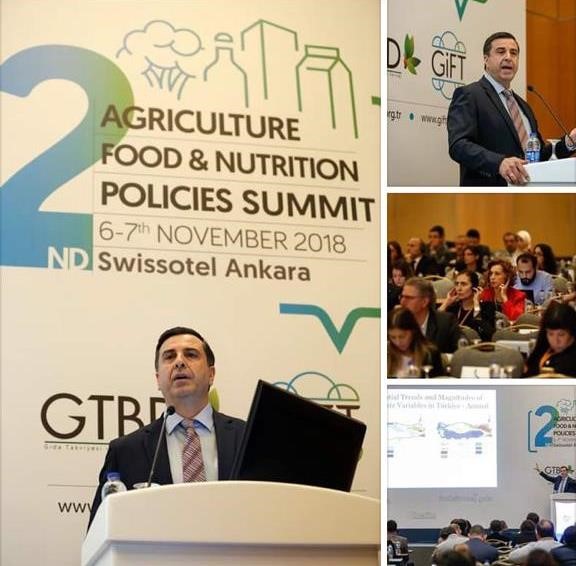
In the Summit, organized by the FOOD AND AGRICULTURE POLICY RESEARCH CENTER, Irmak's presentation titled "Devising Agricultural Policies to Reduce Negative Effects of Change in Climate Variables on Water Resources and Agricultural Productivity" included scientific data and information about long-terms trends and magnitudes of primary climatic variables that impact water resources and agricultural crop production. His presentation also discussed scientific and research-based methods and strategies that can be adopted to mitigate potential negative impacts of these changes. Irmak emphasized the strong collaboration and effective partnership needs between policy- and decision-makers, scientists and researchers, non-profit organizations, private sectors and other organizations to accomplish mitigation and adoption strategies.
Irmak stated that "while so much discussion and analyses take place change in climate variables on a on global scale, it is imperative that the analyses are conducted for local/regional conditions so that local changes can be documented and local best agricultural and water resources management practices can be developed in response to changes in climatic variables. While increases in air temperature and CO2 concentration may seem to be small for humans, the implications of these small increases in air temperature and associated increase in vapor pressure deficit, evaporative losses, etc. can significantly alter plant’s physiological and phenological functions and, in turn, their impact(s) on agricultural practices and productivity can be significantly influenced.
"Whether it is 'man-made' or 'natural occurrence,' climate variables have been changing and they are having significant impacts on our agro-ecosystems. This message must be communicated through good quality science and research-based data and information," Irmak added. He concluded his keynote with suggestions, some of which included:
• Potential changes in climate variables must be quantified and studied for all major agriculturally important regions, as well as cropping systems, with finer resolution than global or regional scale. Accurate quantification of local trends and magnitudes of changes are critical for developing local understandings of dynamics between climate vs. agro-ecosystems, adoption and mitigation strategies.
• Impact(s) of climate variables on water resources must be quantified with finer resolutions and spatio-temporally for robust assessment of water resources planning, availability, demand, use, allocation and future forecast.
• Effective agricultural practices that can aid in encountering some of the negative impacts of change in climate variables must be researched, demonstrated and effective and comprehensive networks and education programs must be developed to enable adoption of these strategies in production fields.
• Technology implementation in agriculture and natural resources and water resources must be accomplished to adopt climate impacts to enhance productivity and conservation. It is a difficult task, but can be done with carefully and effectively coordinated partnerships and efforts when partners have the same goal and commitment.